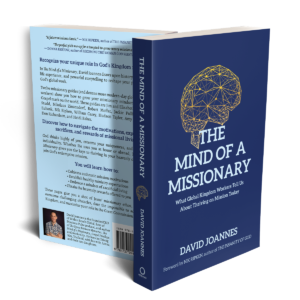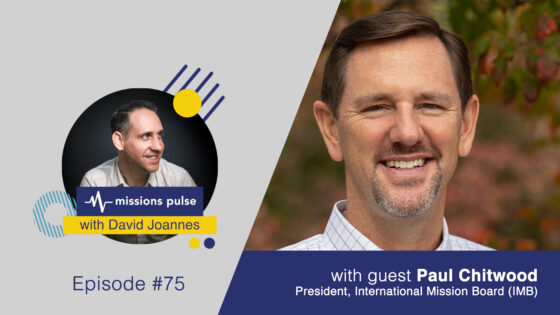Global Kingdom worker: William Carey
Role in The Mind of a Missionary: He appears in section three: Sacrifices, chapter eight: Emotional Struggles.
Dates: August 17, 1761—June 9, 1834
Location of missions work: India
Known for: William Carey, known as “the Father of Modern Missions” was a British Christian missionary, Particular Baptist minister, translator, social reformer, and cultural anthropologist who founded the Serampore College and the Serampore University, the first degree-awarding university in India.
Famous quotes: “Expect great things from God; attempt great things for God.”1
“I’m not afraid of failure; I’m afraid of succeeding at things that don’t matter.”
“It is the duty of those who are entrusted with the Gospel to endeavor to make it known among all nations.”
“To know the will of God, we need an open Bible and an open map.”
In The Mind of a Missionary, section three: Sacrifices, chapter eight: Emotional Struggles, you will read about William Carey, “the Father of Modern Missions,” and the emotional struggles he encountered on the mission field. His wife, Dorothy, dealt with psychological delusions during a large part of her missionary life. Global Kingdom workers add their narratives to this chapter as they share their modern-day difficulties of cross-cultural service. Through the Holmes and Rahe Stress Scale, you will learn about the high stress levels missionaries face—nearly three times the typical “danger level.” In the end, you will find that God’s promises remain; that those who go forth to proclaim the name of Jesus in foreign lands can overcome emotional struggles. Those who remain at home to give witness of God’s Kingdom can thrive on mission by learning the secrets of global Kingdom workers.
The promise of Jesus’s presence was given in the context of the Great Commission, that Christians living and operating on mission might thrive both in ministry and in personal satisfaction.2
In April 1793, Carey uprooted his family from all their familiarities in England. Dorothy was pregnant with their fourth son at the time and so refused to leave England. She had never been more than a few miles away from home. Now she was pressured with the arduous task of international travel by ship to Calcutta. Not long before they were to set sail to India, Dorothy conceded and reluctantly boarded the ship.
Subjected to new and unforeseen tropical diseases, Dorothy’s health deteriorated as she struggled with bleeding. Then the family sustained a bitter blow on October 11, 1794, when their five-year-old son, Peter, died. In the next three months, the unimaginable ensued. Shortly before March 1795, Dorothy passed beyond the nebulous border between sound rationality and mental insanity. For the remaining twelve years of her life, she was to remain bound in the devastating grip of psychosis.
God, in His wisdom, chooses to use weak and unassuming misfits to accomplish His mission to redeem mankind. To the human mind, this choice seems illogical and counterintuitive, and even a bit nonsensical at times. But He has no plan B; we are His instruments of choice.3
In 1787, William Carey suggested that Jesus’ command to go into all the world with the Gospel was a charge fit for every Christian present. Surprised by such a radical notion at the time, one man responded with a harsh rebuke: “Young man, sit down!” he quipped. “You are an enthusiast. When God pleases to convert the heathen, he’ll do it without consulting you or me.”4 But the young enthusiast’s missions zeal burned all the more, and the fiery passion he possessed would be felt around the world.
The missionary task is a unique and often misunderstood endeavor. The role of a missionary must not be elevated above the task of every Christ-follower. The charge that Jesus gave to His disciples was the same—“Go, therefore, and make disciples of all nations.” Some are called to their respective “Jerusalem’s,” some to the “Judea’s,” others to the Samaria’s,” and others to “the ends of the earth.”5
The temptation to domesticate the Gospel is prevalent in every generation. Church leaders at the time did not comprehend their role in the Great Commission. They left the ends of the earth to God, unaware that men are God’s means of proclaiming His message.
Antagonistic toward this mindset, the flame of Carey’s missionary fervor provoked his parishioners toward radical compassion for the lost and obedience to the commands of Christ. “Expect great things from God; attempt great things for God,” he said.6
Global Kingdom workers ought to be aware of the stressors they will encounter. As Christians who remain at home seek to thrive on mission in their own contexts, the body of Christ would do well to link hearts and hands in the global missionary endeavor. Some have gone down into the goldmine of souls; those who remain above must hold the ropes, for every believer has a part to play in the global missions mandate.7
In chapter eight of The Mind of a Missionary, you will find that regardless of the physical, emotional, or spiritual hurdles you encounter, God can and will use you to expand His Kingdom on the earth.
God desires that none should perish but that all should come to repentance. The modern missionary movement has its shortcomings, and the vessels through whom He uses to display His glory are cracked jars of clay. Yet God sits enthroned in heaven, confident that His redemptive plan will succeed. He is certain that every tribe will one day stand before His throne, clothed in white robes with palm branches in their hands, and cry out with a loud voice, “Salvation belongs to our God who sits on the throne, and to the Lamb!”
The Mind of a Missionary: What Global Kingdom Workers Tell Us About Thriving on Mission Today by David Joannes
Books/resources:
An Enquiry Into the Obligations of Christians to Use Means for the Conversion of the Heathens by William Carey (Free PDF)
Books/resources referenced in chapter eight of The Mind of a Missionary:
Book review of Dorothy Carey: The Tragic and Untold Story of Mrs. William Carey by James R. Beck
William Carey: The Father of Modern Missions by Basil Miller
The Holmes and Rahe Stress Scale
If you like The Mind of a Missionary, you’ll love the companion devotional. Pick up your copy today!
- William Carey, The Deathless Sermon, May 30, 1792, at the Friar Lane Baptist Chapel in Nottingham, England
- David Joannes, The Mind of a Missionary: What Global Kingdom Workers Tell Us About Thriving on Mission Today, chapter eight: Emotional Struggles
- David Joannes, The Mind of a Missionary: What Global Kingdom Workers Tell Us About Thriving on Mission Today, chapter eight: Emotional Struggles
- Basil Miller, William Carey: The Father of Modern Missions, page 32, Bethany House Publishers, 1985
- David Joannes, The Mind of a Missionary: What Global Kingdom Workers Tell Us About Thriving on Mission Today, chapter eight: Emotional Struggles
- William Carey, The Deathless Sermon, May 30, 1792, at the Friar Lane Baptist Chapel in Nottingham, England
- David Joannes, The Mind of a Missionary: What Global Kingdom Workers Tell Us About Thriving on Mission Today, chapter eight: Emotional Struggles

















